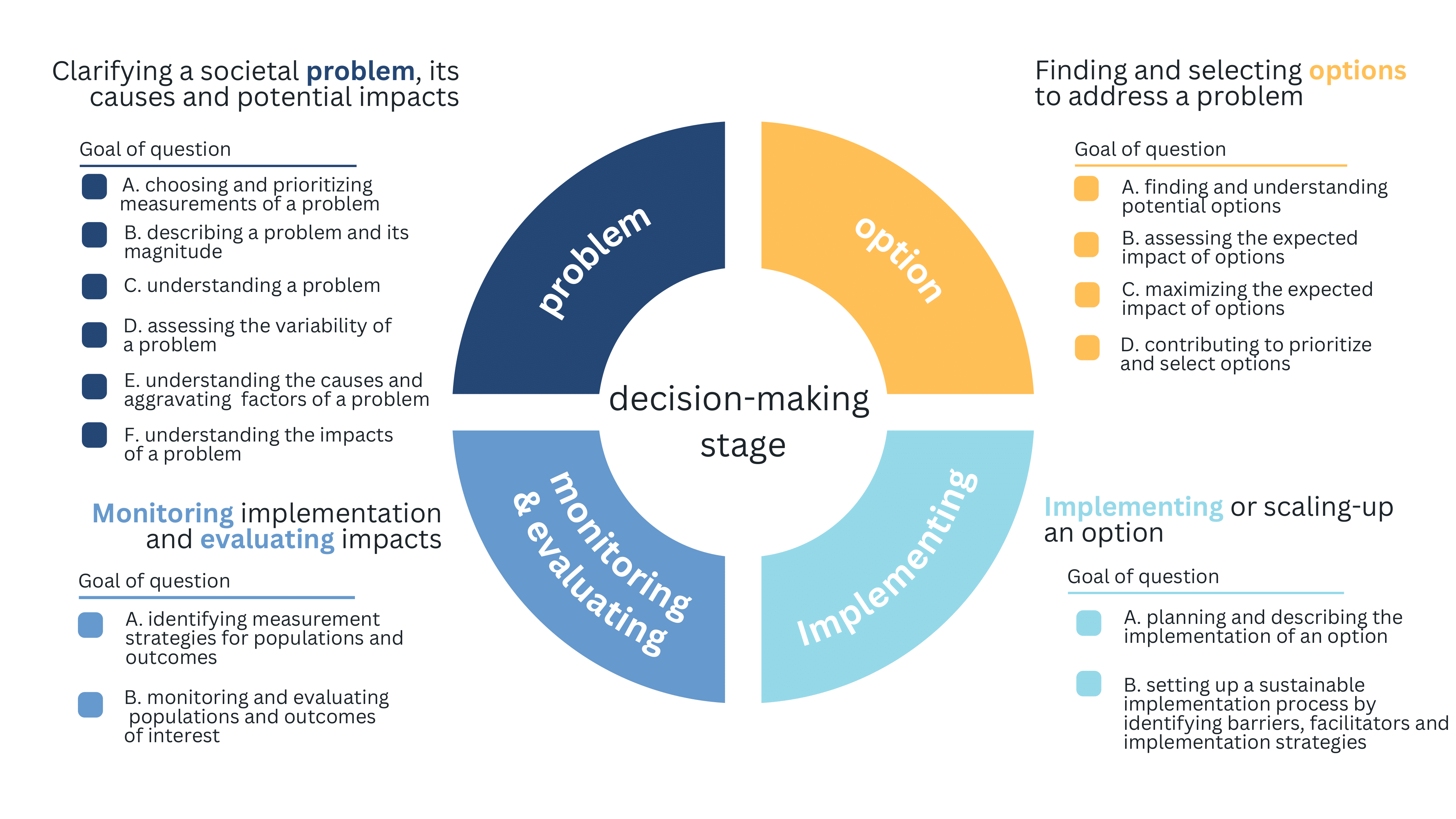The Matching Q-M tool
The Matching Q-M tool (the Matching policy and practice Questions to Methodological approaches tool) connects two critical parts of evidence support systems:
- converting a decision-making need into a specific type of question
- having identified the type of question, providing the most suitable methodological approaches to address that question.
Click on any of the four stages if you want to:
Clarify a problem
Find an option to address a problem
Implementing an option
Monitoring the implementation and/or evaluating the impact of options
This tool was created using a demand-driven approach asking the questions that multiple evidence-support units have answered to decision-makers, and by conducting a Delphi to prioritize the most suitable methodological approaches.
See a description of the full list of methodological approaches that are included in the Matching Q-M tool.

